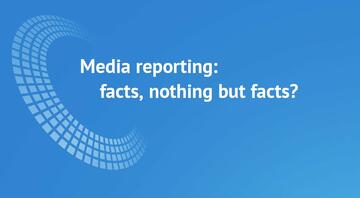
The purpose of this IRIS Special is to examine the principles of accuracy, objectivity and fairness in news and current affairs reporting by European media organisations. The issue is explored from a number of perspectives, including from that of media organisations themselves, the Council of Europe, member states, and judicial and regulatory bodies. Thus, the IRIS Special will attempt to set out the current regulatory framework in the Council of Europe, which is aimed at ensuring accuracy, objectivity and fairness in news and current affairs reporting.
The preliminary questions that must be asked when examining this issue are (a) why is it important to examine the principles of accuracy, objectivity and fairness, (b) why focus on news and current affairs, and (c) why focus on media organisations.
These questions are addressed in Part 1 of this IRIS Special, where Chapter 1 is devoted to setting out some of the issues that are explored in the country chapters, and the legal and policy issues which are examined throughout the publication. Next, Chapter 2 examines Council of Europe law relating to accuracy, objectivity and fairness in the reporting of news and current affairs by media organisations − in particular the Convention for the Protection of Human Rights and Fundamental Freedoms. Chapter 3 then provides an overview of the current European standards and policies on accuracy, objectivity and fairness in news and current affairs, including in respect of Council of Europe bodies such as the Committee of Ministers and the Parliamentary Assembly, as well as other international bodies and media and journalist organisations.
Following these opening chapters, Part 2 contains eleven country reports (Chapters 4-14) from a selection of Council of Europe member states. The purpose of these country reports is to explore a number of questions.
Firstly, how do the main public and commercial broadcasters view the issue of accuracy, objectivity and fairness in news and current affairs − and in particular, what mechanisms do they have in place to ensure accuracy, objectivity and fairness?
Secondly, how do the main newspaper organisations view the issue of accuracy, objectivity and fairness in news and current affairs reporting − and in particular, what mechanisms do they have in place to ensure accuracy, objectivity and fairness?
Thirdly, how do the main online media publications view the issue of accuracy, objectivity and fairness in news and current affairs − and in particular, what mechanisms do they have in place to ensure accuracy, objectivity and fairness? Lastly, each country report will describe the regulatory framework, including legislation, case law, regulatory codes, and regulatory enforcement that impact upon the issue of accuracy, objectivity and fairness in news and current affairs reporting by these media organisations.
The selection of member states is not exhaustive, and does not seek to be representative of the 47 member states of the Council of Europe. Rather, the selection attempts to strike a fair balance between larger and smaller member states, and in respect of geographic location. Thus, the larger member states included are Germany (DE), Spain (ES), France (FR), the United Kingdom (GB), Italy (IT), Poland (PL), and the Russian Federation (RU). In addition, Finland (FI), Ireland (IE), the Netherlands (NL), and Slovakia (SK) are also included.
While there is divergence in the approaches adopted in the countries examined, there are substantial and well-developed regulatory and self-regulatory frameworks applicable to broadcast, print, and indeed online news media, to ensure accuracy, objectivity and fairness. Indeed, it also came to the fore how media organisations themselves also place great importance on these principles, and how they implement ethics codes and complaint mechanisms which are linked to building trust among their viewers, readers and subscribers.
Lastly, Part 3 contains two chapters, with Chapter 15 providing an overview and objective discussion of the findings from the country reports, and the final Chapter 16 concluding with the findings of the IRIS Special as a whole.
Tags: Access to information Media freedomThe content of this article can be used according to the terms of Creative Commons: Attribution-NonCommercial 4.0 International (CC BY-NC 4.0) . To do so use the the wording "this article was originally published on the Resource Centre on Media Freedom in Europe" including a direct active link to the original article page.

